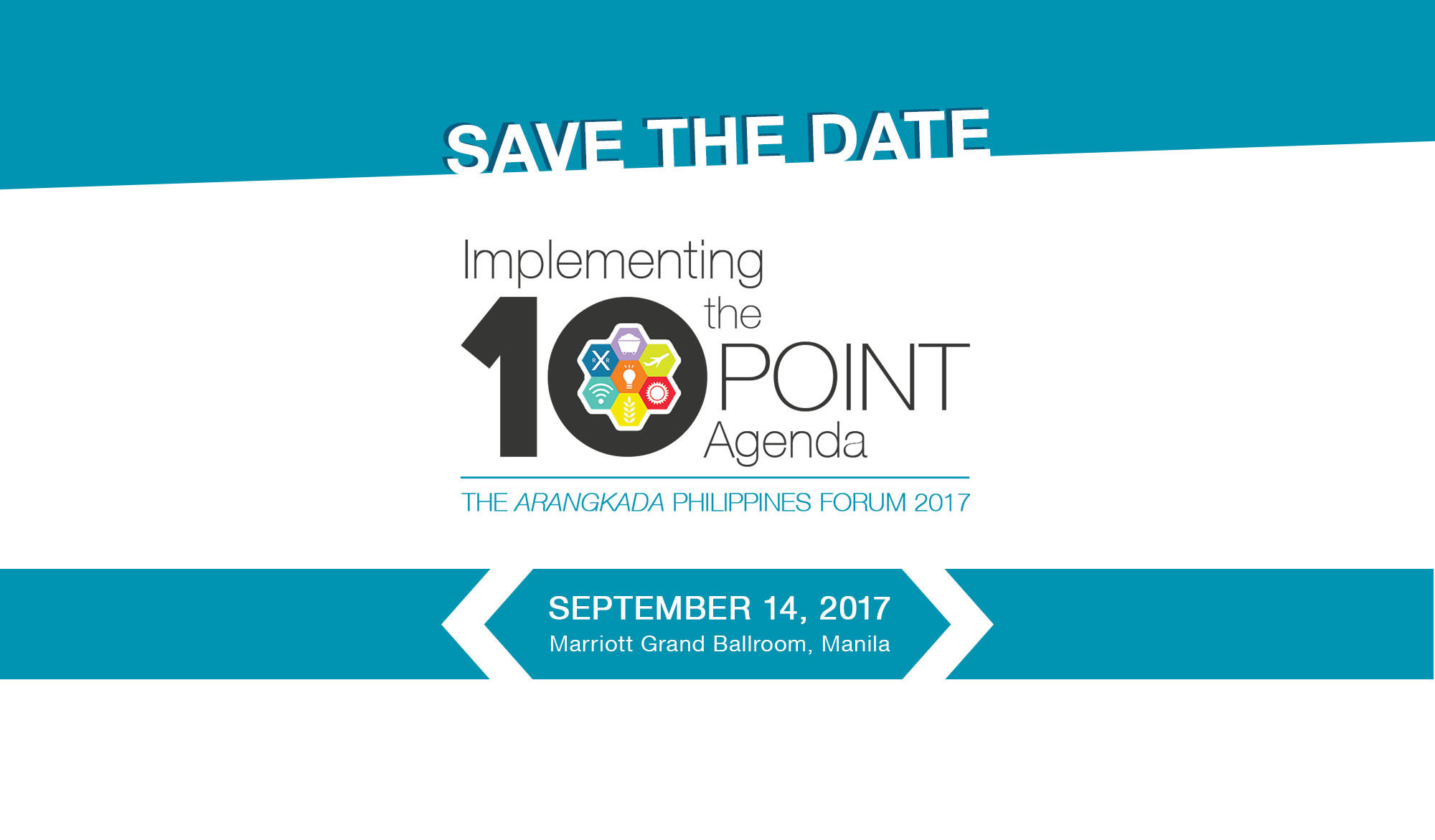September 15, 2017
The Philippines should catch up with Asean countries in terms of attracting foreign direct investments (FDIs) but foreign investors said this will depend on how fast government would be able to remove restrictions.
While the Philippines has broken out of its low level of FDIs – from $1.1 billion in 2010 to $7.9 billion in 2016 and h averaged $6.5 billion per year — – the number still lags behind Asean, according to John Forbes, chief of party of the Arangkada Philippines Report and senior adviser of the American Chamber of Commerce of the Philippines.
The Philippines breached the Arangkada target of $7.5 FDIs but the group will not set any new targets.
The Joint Foreign Chambers had said FDI should be targeted to exceed $10 billion and be measured in erms of jobs and exports generated.
Forbes said the group is not making an assessment of the Arangkada goals but said these have been updated to reflect the 10-point agenda of the Duterte administration and the Philippine Development Plan.
Julian Payne, president of the Canadian Chamber of Commerce of the Philippines for his part said the relevant criteria here is how the Philippines fares with Vietnam and Thailand.
But Payne said the key point is how quickly the administration proceeds to remove the restrictions on foreign investments.
There have been moves to lift foreign restrictions on public utilities as well as on construction. The Foreign Investment Negative List is also being reviewed.
“With these initiatives, it obvious FDIs will grow but to set a specific target is risky… it’s better to benchmark with the Asean average… (the Philippines is) clearly below it,” Payne said.
In 2015, the Philippines attracted $5.7 billion FDIs which pale in comparison with Singapore whose FDIs stood at $61 billion; Indonesia $17 billion and Malaysia and Vietnam with more than $11 billion each and Thailand’s $8 billion.
Ernesto Pernia, socioeconomic planning secretary, said he wants to “drastically shorten” the FINL and that he supports aggressive liberalization to be able to open up more business areas to foreign investors.
Pernia told reporters on the sidelines of the Forum the current draft is a long list and “ I want to really shorten it drastically.”
Pernia said areas up aggressive liberalization are retail trade, certain professions, public utilities, and contractors. “
The final form will be more aggressive, it will be closer to the Asean. There are many things in there they are not increasing it by 40 to 60 percent equity, I said bring it up to 100 percent for certain areas,” Pernia said.
Pernia cited professors, as one of the professions that will be likely removed under the FINL.
The Regular Foreign Investment Negative List, which was last promulgated by the previous administration in May 2015 through Executive Order No. 184, enumerates the investment areas and activities reserved exclusively for Filipinos as well as industries where foreign equity of up to a maximum of 40 percent is allowed, as mandated in the Constitution.
The review of the FINL issued periodically by Malacañang under the Foreign Investments Act of 1991 started in May this year.
The Duterte administration seeks to open up the economy by lifting economic restrictions in the Constitution, in order to open more business areas to foreign investors. Under the 2015 Negative List, 100 percent foreign participation is allowed only for retail trade enterprises under certain conditions specified in Republic Act 8762 or the Retail Trade Liberalization Act and also in the rice and corn industry under certain conditions. The 2015 list also allows full foreign participation in the exploration, development and utilization of natural resources through financial or technical assistance agreements with the President. — I. Isip. and A. Celis
Source: https://www.malaya.com.ph/business-news/business/ph-plays-catchup-fdis
